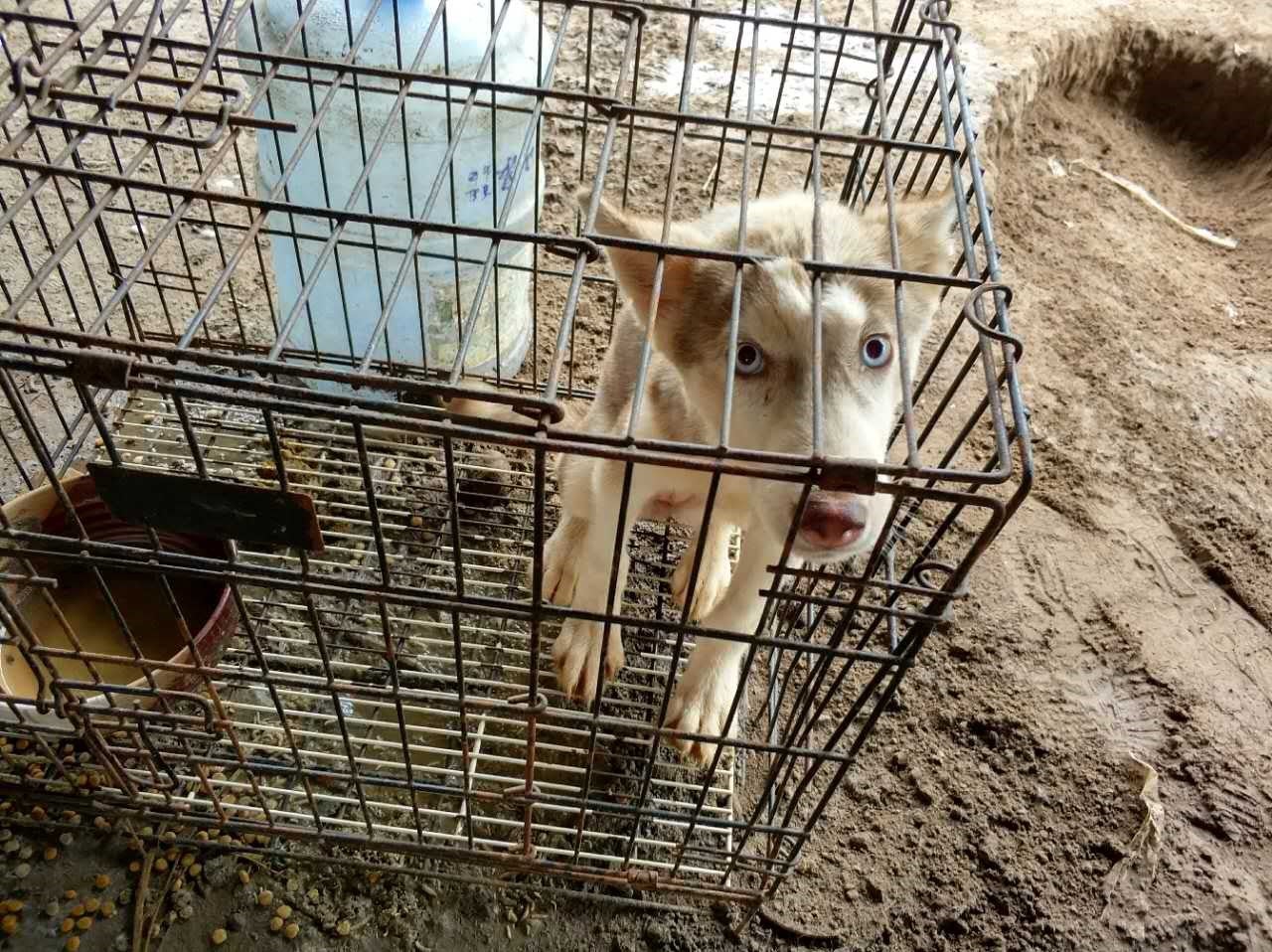
Last week, China Animal Protection Power, a coalition of Chinese animal protection groups based in Beijing, uncovered and closed an illegal dog collection depot in Changping, a suburban township of Beijing. The rescuers representing the Capital Animal Welfare Association, Vshine, Yshine, Beijing Adoption Day, Beijing Pure Heart Rescue and others worked with law enforcement authorities to rescue 26 dogs, including four newborn puppies, from an abandoned vegetable warehouse.
Beijing’s Capital Animal Welfare Association, a CAPP member and long-time partner of Humane Society International, reported the warehouse to authorities, who quickly intervened and confiscated the animals on August 12. About 20 CAPP activists participated in the rescue. The dogs spent the night at a police animal shelter, but are now in a rehabilitation facility that HSI built in 2016. They will receive veterinary care and be placed for adoption or, when possible, will be reunited with their families.
The rundown vegetable greenhouse is believed to be a dog collecting depot that dog meat traders use as a transit and temporary holding facility. According to activists, the traders snatch the dogs from the street and put them in these facilities until they have enough dogs to be loaded onto trucks bound for the country’s three major dog meat markets in South, Central and Northeast China. Up to a thousand dogs can be transported illegally in each of these trucks.
Peter Li, HSI’s China specialist, said: “These dogs were found just in time inside the decrepit, filthy shed. Traders kept the dogs chained up before they transported the animals to dog meat markets well outside the city, where the dogs meet a horrendous death at the hands of butchers. Humane Society International applauds these brave animal activists for cutting off yet another supply line for the dog meat trade industry. Their new approach of working with the authorities to thwart the dog meat traders and their largely illegal industry has been successful, with more than 4,000 dogs rescued to date across the country.”
Dog meat consumption is rare in Beijing, thanks to the strong campaigning by animal activists and widespread local support to close dog meat markets and restaurants in China’s capital.
Mdm Qin, director of Capital Animal Welfare Association, said: “Dog theft is a crime that also has an adverse social stability impact in our country. Beijing is the capital of the country. We cannot allow this lawless act to tarnish the reputation of law enforcement in the nation’s capital. The outskirts of the city cannot be allowed to be the hot bed for illegal operations that violate people’s property rights, the state’s animal disease control policies, and the country’s food safety laws.”
On July 6, CAPP assisted local authorities with the rescue of more than 200 dogs and more than 140 cats from a truck in Hunan bound for the dog meat trade. Thanks to the new spirit of cooperation between the activists and the authorities, local law enforcement penalized the dog meat traders and handed all the rescued animals to the care of the activists. This weekend’s rescue in Changping was a continuation of this new approach of working more closely with the authorities to combat the dog meat trade.
Media contact: Raul Arce-Contreras, rcontreras@humanesociety.org
